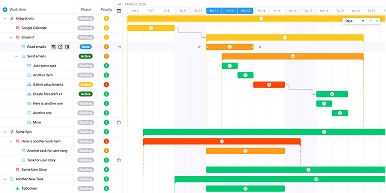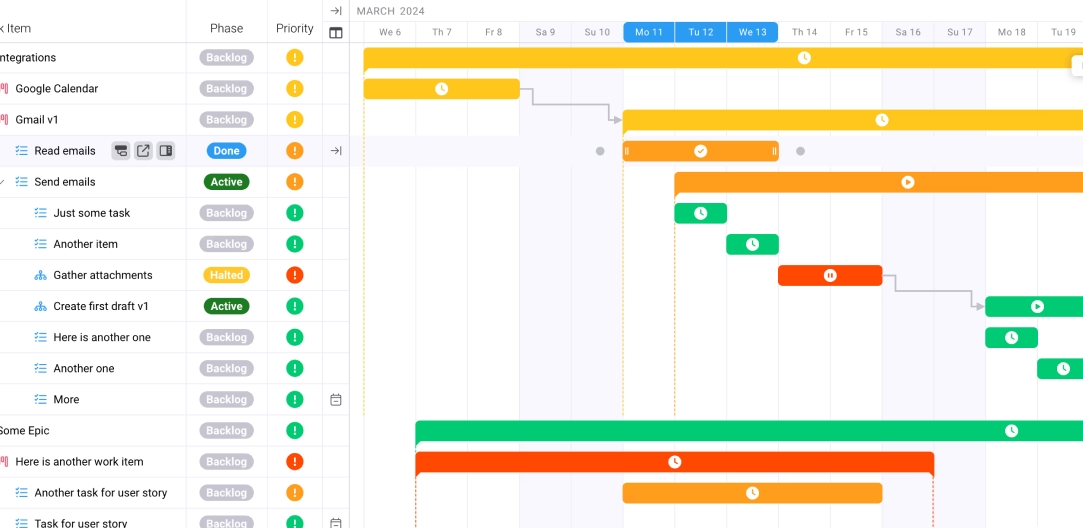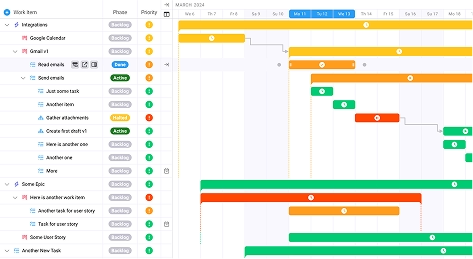
Top 5 Project Management Software for Architects
Key takeaways:
Architecture has always been about precision, vision, and bringing complex ideas to life. But in 2025, success depends on more than creative talent—it requires sophisticated project management software for architects that can handle the unique demands of design-driven workflows. The global construction and design software market size was estimated at USD 10,964.8 Million in 2024 and is projected to reach USD 19,116.7 Million by 2030, signaling a massive shift toward digital tools in the architecture industry.
For architectural firms juggling multiple clients, complex project timelines, and intricate design phases, the right project management software for architects isn't just helpful—it's essential for survival and growth in today's competitive landscape.
The Current Challenge: Why Traditional Project Management Falls Short for Architects
The architectural profession faces unique project management challenges that generic solutions simply cannot address. Only 23% of companies use a PPM or Resource Management software solution, yet those that do still struggle with tools that don't understand their workflow.
Unlike other industries, architectural projects require seamless integration between creative design processes, regulatory compliance tracking, client collaboration, and financial management. Architecture firms have spent the past 50 years upgrading their hardware and software and training their staff to be more efficient, but many still lack the specialized project management tools that can truly optimize their operations.
The pain points are clear: disjointed communication between project phases, difficulty tracking billable hours across complex project stages, challenges in managing client expectations during lengthy design iterations, and the constant struggle to maintain profitability while delivering exceptional creative work.
40% of firms that meet or exceed their goals plan to invest in project management software next year, indicating that high-performing firms recognize the competitive advantage that specialized tools provide. The question isn't whether architects need dedicated project management software—it's which solution will best serve their unique requirements.
The Strategic Framework: Essential Features for Architectural Project Management
Effective project management software for architects must address the entire project lifecycle, from initial client consultation through final project delivery and beyond. Ravetree is know as one of the top PSA software tools, particularly for architectural workflows that blend creative processes with technical precision.
The most successful architectural firms implement solutions that provide visual project tracking capabilities, allowing teams to see project progress at a glance while maintaining detailed oversight of individual tasks and milestones. These systems must accommodate the iterative nature of design work, where revisions and refinements are not just common but essential to achieving client satisfaction.
Resource allocation becomes critical when managing multiple concurrent projects with varying timelines and staff requirements. The software must enable architects to balance creative talent across projects while ensuring that billable hours are accurately tracked and optimized for profitability.
Client collaboration features are non-negotiable, as architectural projects require constant communication with stakeholders who may not be familiar with technical processes. The platform must provide clear, visual progress updates and facilitate feedback collection without disrupting the creative workflow.
Financial oversight capabilities ensure that projects remain profitable throughout their lifecycle, with real-time budget tracking and forecasting tools that help firms make informed decisions about resource allocation and project scope adjustments.
Implementation Tactics: The Top 5 Project Management Software Solutions for Architects
1. Ravetree: The All-in-One Creative Powerhouse
Ravetree stands out as the premier choice for architectural firms seeking comprehensive project management capabilities within a single platform. This solution combines project management, CRM, resource planning, time tracking, and billing functionalities designed specifically for creative professional services.
The platform's visual project dashboards provide architects with intuitive oversight of project progress, budget utilization, and team allocation across multiple concurrent projects. Ravetree offers lots of customization options with features tailored to creative workflows.
Ravetree's client portal functionality enables seamless collaboration with clients throughout the design process, providing controlled access to project updates, design iterations, and approval workflows. This transparency builds trust while reducing the administrative burden on project managers.
The integrated billing system automatically captures time entries and project expenses, streamlining invoice generation and ensuring accurate client billing. For architectural firms juggling multiple projects with varying billing structures, this automation significantly reduces administrative overhead while improving cash flow management.
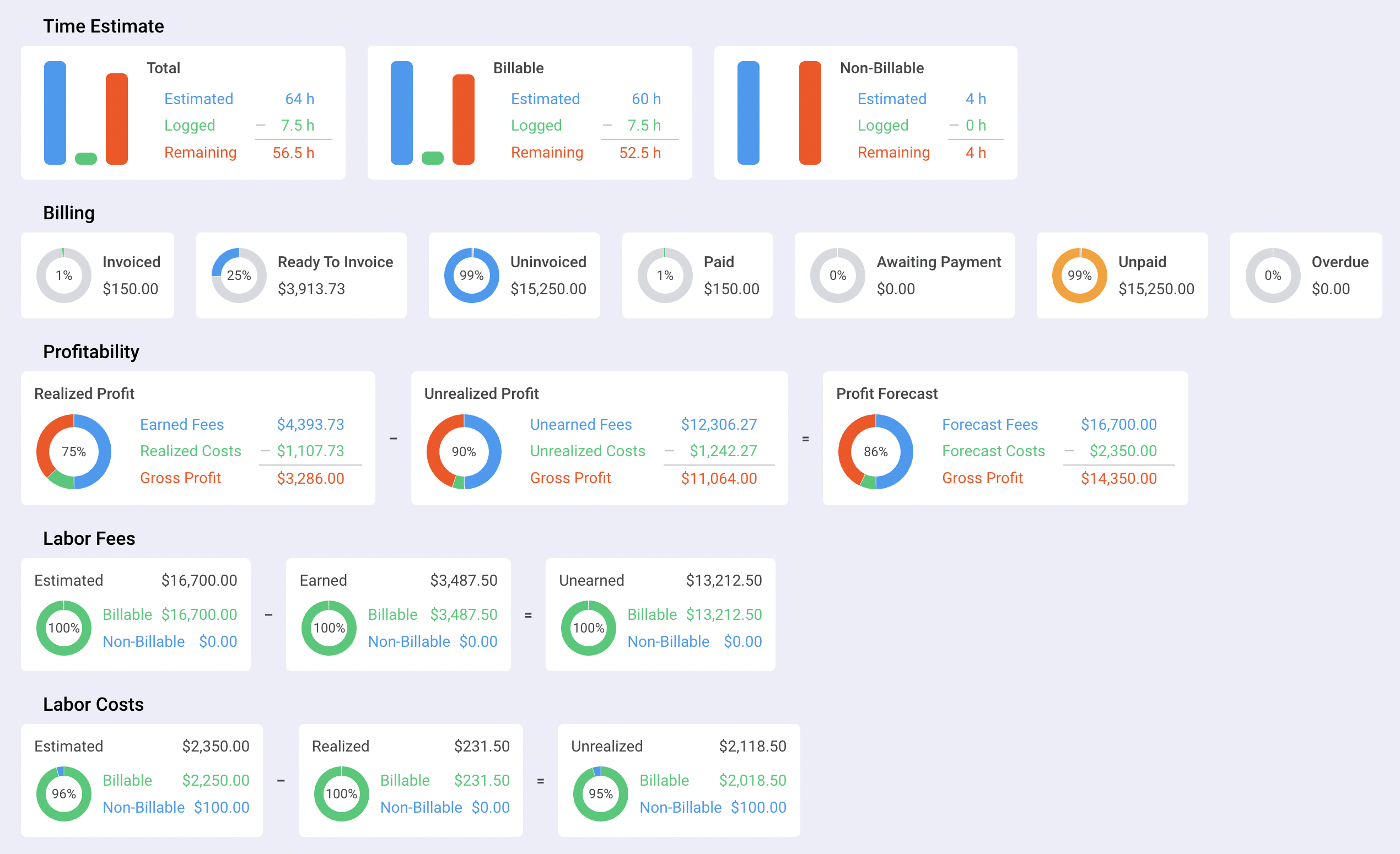
2. Mosaic: AI-Powered Resource Optimization
Mosaic revolutionizes architectural project management through artificial intelligence and advanced resource planning capabilities. Mosaic enables A&E firms to efficiently balance workload, which increases utilization while eliminating costly overtime and burnout, making it particularly valuable for firms managing complex staffing requirements across multiple projects.
The platform's AI-powered team assembly feature analyzes project requirements, team member skills, and availability to suggest optimal staffing configurations. This capability is invaluable for architectural firms where project success depends heavily on matching the right talent to specific project phases and client requirements.
Mosaic's visual workload management interface provides real-time visibility into team capacity, helping project managers identify potential bottlenecks before they impact project delivery. The software's forecasting capabilities enable firms to plan hiring decisions based on projected workload, supporting sustainable growth without compromising project quality.
The platform integrates seamlessly with existing financial software, including popular accounting solutions used by architectural firms. This integration ensures that project data flows smoothly between planning, execution, and financial reporting systems, providing a comprehensive view of project and firm performance.

3. Scoro: Comprehensive Business Intelligence
Scoro positions itself as a complete business management solution that goes beyond project management to provide comprehensive operational oversight for architectural firms. Scoro lets you plan capacity and forecast utilization so you can allocate resources more efficiently, offering sophisticated analytics that help firms optimize their operations at multiple levels.
The platform's project accounting features provide real-time visibility into project profitability, enabling architects to make data-driven decisions about resource allocation and pricing strategies. This financial transparency is crucial for architectural firms operating in competitive markets where margins can be thin.
Scoro's advanced reporting capabilities generate insights into team performance, project profitability, and operational efficiency. These analytics help firm leaders identify patterns and trends that inform strategic decision-making, from staffing decisions to service offering optimization.
The software's quote-to-cash functionality streamlines the entire project lifecycle, from initial client proposals through final invoice collection. This end-to-end integration reduces administrative friction and provides clear visibility into the financial health of both individual projects and the overall firm.
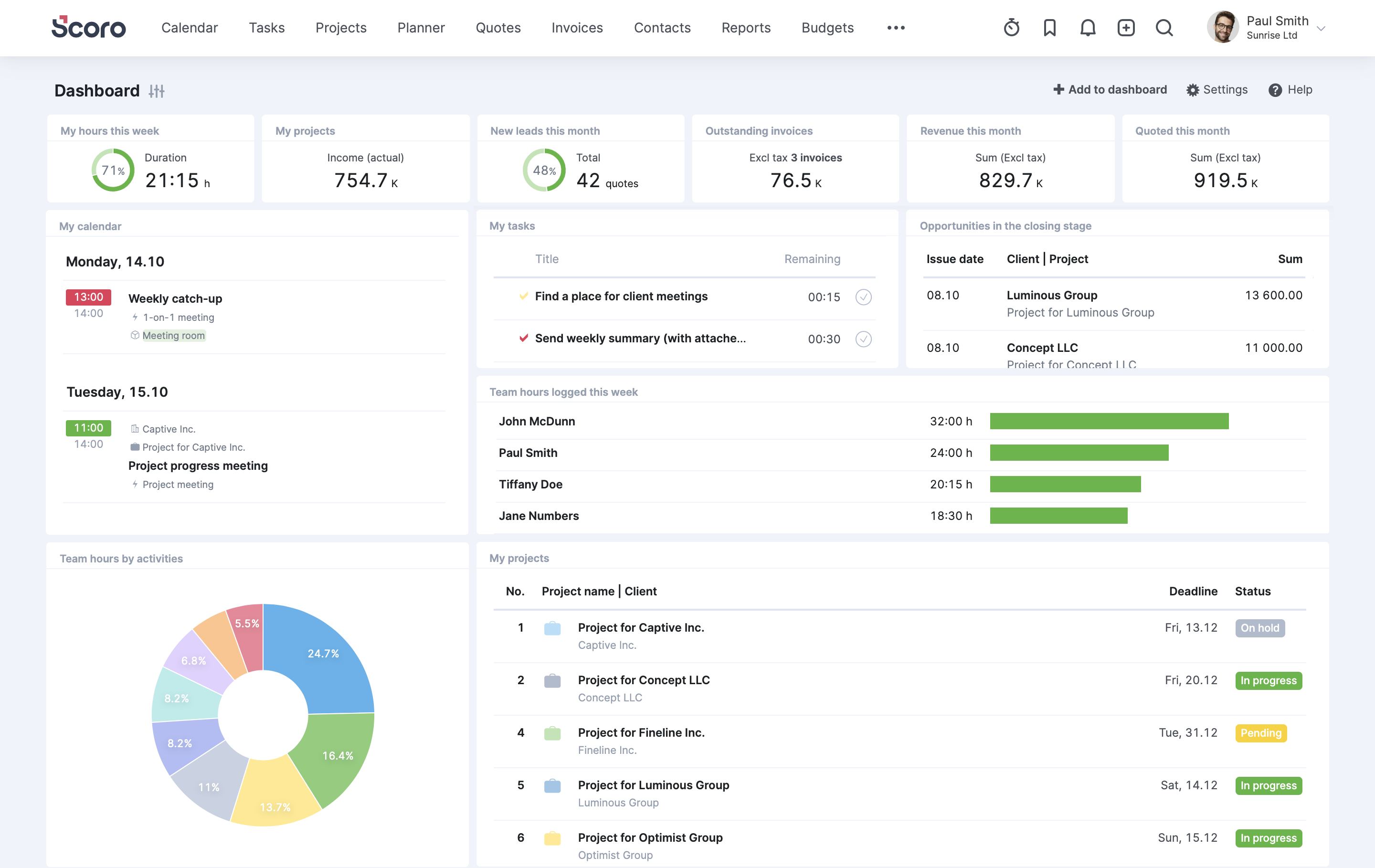
4. Monograph: Architecture-Specific Excellence
Monograph was built specifically for architecture and engineering firms, providing features and workflows tailored to the unique requirements of design professionals. The platform's visual project planning interface accommodates the iterative nature of architectural work while providing clear progress tracking throughout project phases.
The software's integration with popular accounting systems ensures that financial data flows seamlessly between project management and business operations. This integration is particularly valuable for architectural firms that need to track project profitability across complex billing structures and project phases.
Monograph's time tracking features are designed for the realities of architectural work, accommodating both focused design time and collaborative project activities. The platform automatically generates timesheets based on project activities, reducing administrative burden while ensuring accurate time capture for billing purposes.
The platform provides sophisticated project analytics that help firms understand their performance patterns and identify opportunities for operational improvement. These insights are particularly valuable for growing architectural firms seeking to optimize their processes and profitability.

5. BQE CORE: Enterprise-Grade Comprehensive Management
BQE CORE delivers enterprise-level project management capabilities specifically designed for professional services firms. BQE CORE offers a powerful blend of project management and accounting features designed to streamline operations for architecture, engineering, and consulting firms, providing the scalability and sophistication required by larger architectural practices.
The platform's project center provides a comprehensive dashboard that consolidates all project information, from initial planning through final delivery. This centralized approach ensures that project managers have complete visibility into project status, resource allocation, and financial performance without navigating between multiple systems.
BQE CORE's automated billing features accommodate the complex billing requirements common in architectural projects, supporting various billing methods from hourly rates to fixed fees and percentage-based billing. The system automatically generates invoices based on project progress and time entries, reducing administrative overhead while ensuring accurate billing.
The software's business intelligence capabilities provide deep insights into firm performance, enabling leaders to identify trends, optimize resource allocation, and make informed strategic decisions. These analytics are particularly valuable for architectural firms seeking to improve their operational efficiency and profitability.
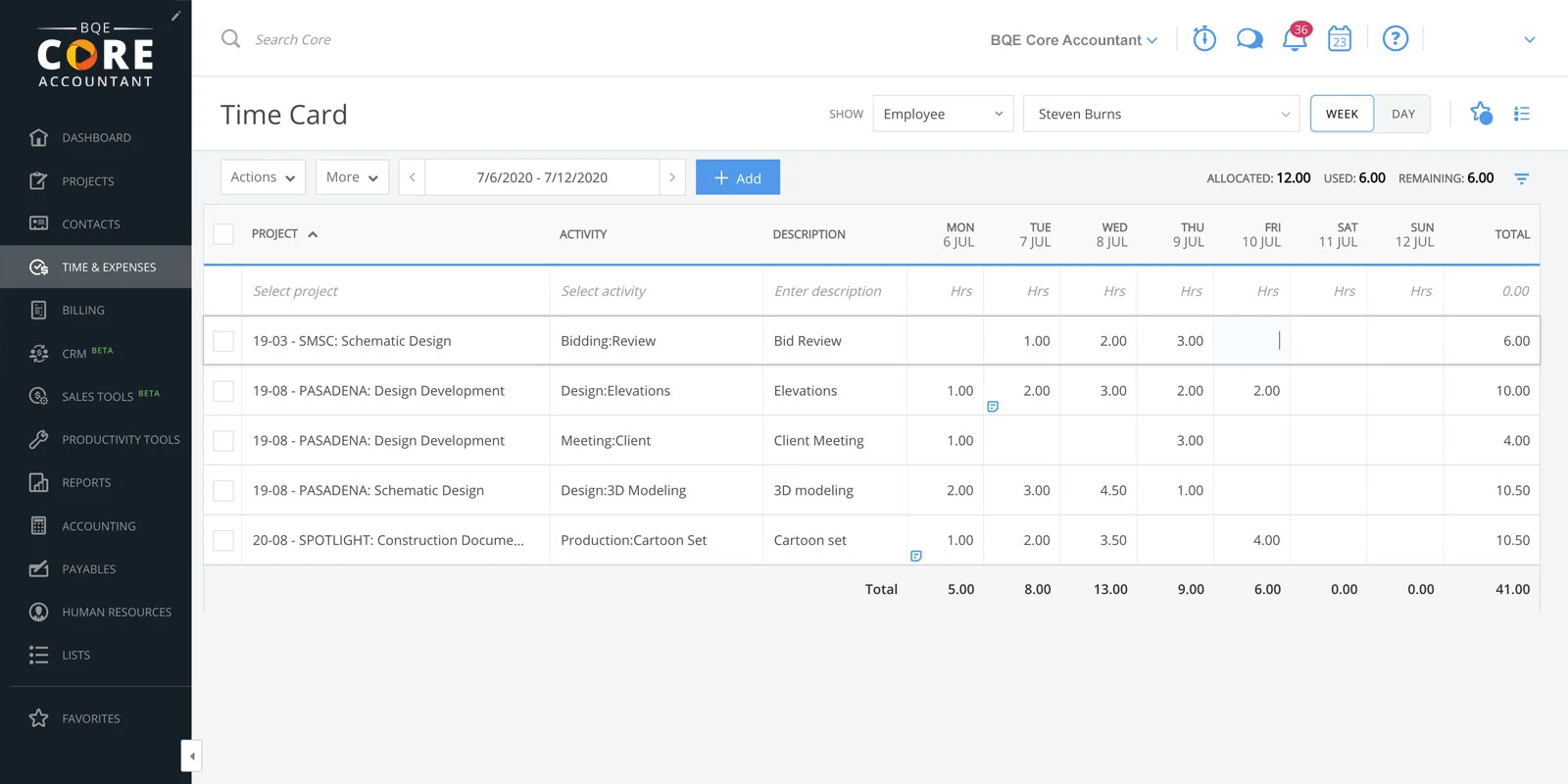
Measuring Success: Key Performance Indicators for Architectural Project Management
Successful implementation of project management software for architects requires tracking specific metrics that reflect the unique characteristics of architectural work. 77% of high-performing projects use project management software, but success depends on measuring the right indicators and using them to drive continuous improvement.
Project delivery metrics should focus on adherence to design phase milestones, client approval timelines, and overall project completion dates. These indicators help firms identify bottlenecks in their design process and optimize workflows for improved efficiency.
Financial performance indicators must encompass project profitability, utilization rates, and billing accuracy. Architectural firms should track the percentage of time spent on billable activities versus administrative tasks, aiming to maximize productive time through effective process automation.
Client satisfaction metrics become crucial for architectural firms, where reputation and referrals drive business growth. Tracking client approval response times, revision requests, and overall project satisfaction scores provides insights into the effectiveness of project communication and deliverable quality.
Team productivity indicators should measure both individual and collaborative performance, including design output quality, project collaboration effectiveness, and professional development progress. These metrics help firms optimize team composition and identify opportunities for skill development.
Future Considerations: Emerging Trends in Architectural Project Management
The architectural project management landscape continues to evolve, driven by technological advancement and changing client expectations. Choosing the right project management tool requires evaluating features that align with your specific workflow needs, and forward-thinking firms must consider how emerging trends will impact their tool selection decisions.
Artificial intelligence integration is becoming increasingly sophisticated, with AI-powered tools helping architects optimize resource allocation, predict project risks, and automate routine administrative tasks. These capabilities will become standard features rather than competitive advantages, making early adoption crucial for maintaining competitiveness.
Virtual and augmented reality integration is transforming client collaboration, enabling more immersive project reviews and reducing the need for physical meetings. Project management software that can accommodate these new collaboration methods will provide significant advantages in client relationship management.
Sustainability tracking and carbon footprint monitoring are becoming essential features as environmental considerations become central to architectural practice. Software solutions that can track and report on sustainability metrics will help firms meet increasing regulatory requirements and client expectations.
Mobile-first design is essential as architectural work becomes increasingly distributed and remote. Project management tools must provide full functionality through mobile interfaces, enabling architects to manage projects effectively from job sites, client meetings, and remote work locations.
Conclusion
The architecture industry's digital transformation is accelerating, and project management software for architects has become a critical competitive advantage rather than a luxury. The five solutions highlighted in this analysis—Ravetree, Mosaic, Scoro, Monograph, and BQE CORE—each offer unique strengths that address different aspects of architectural project management challenges.
Success with project management software for architects depends on selecting a solution that aligns with your firm's specific workflow requirements, growth objectives, and technical capabilities. The most effective approach involves careful evaluation of your current processes, clear identification of improvement opportunities, and systematic implementation that includes proper team training and change management.
The firms that thrive in the coming years will be those that embrace technology not just as a tool, but as a strategic enabler of better design, more efficient operations, and stronger client relationships. The investment in comprehensive project management software for architects pays dividends through improved project delivery, enhanced profitability, and the freedom to focus on what architects do best—creating exceptional designed environments.
For architectural firms ready to take the next step in their digital transformation journey, the time to act is now. The competitive advantages of sophisticated project management software compound over time, making early adoption a strategic imperative for long-term success.
Frequently Asked Questions
How do I choose the best project management software for my architecture firm?
Consider your firm size, project complexity, current workflow challenges, and integration requirements with existing design software. Evaluate each platform's industry-specific features and request demos to test functionality with your actual projects.
Can project management software integrate with design tools like AutoCAD and Revit?
Most modern architectural project management platforms offer integrations or API connections with popular design software. Check with vendors about specific integrations for your current toolset before making a decision.
What's the typical ROI timeline for architectural project management software?
Most firms see measurable improvements in project delivery and billing accuracy within 3-6 months of implementation, with full ROI typically achieved within the first year through improved efficiency and reduced administrative overhead.
How important is mobile access for architectural project management software?
Mobile access is essential for architects who frequently work on job sites, attend client meetings, and need to update project status in real-time. Look for platforms with full-featured mobile apps rather than basic web interfaces.
Should small architecture firms invest in comprehensive project management software?
Yes, especially as small firms often have the most to gain from improved efficiency and automated administrative processes. Many platforms offer scalable pricing that makes professional-grade tools accessible to smaller practices.


